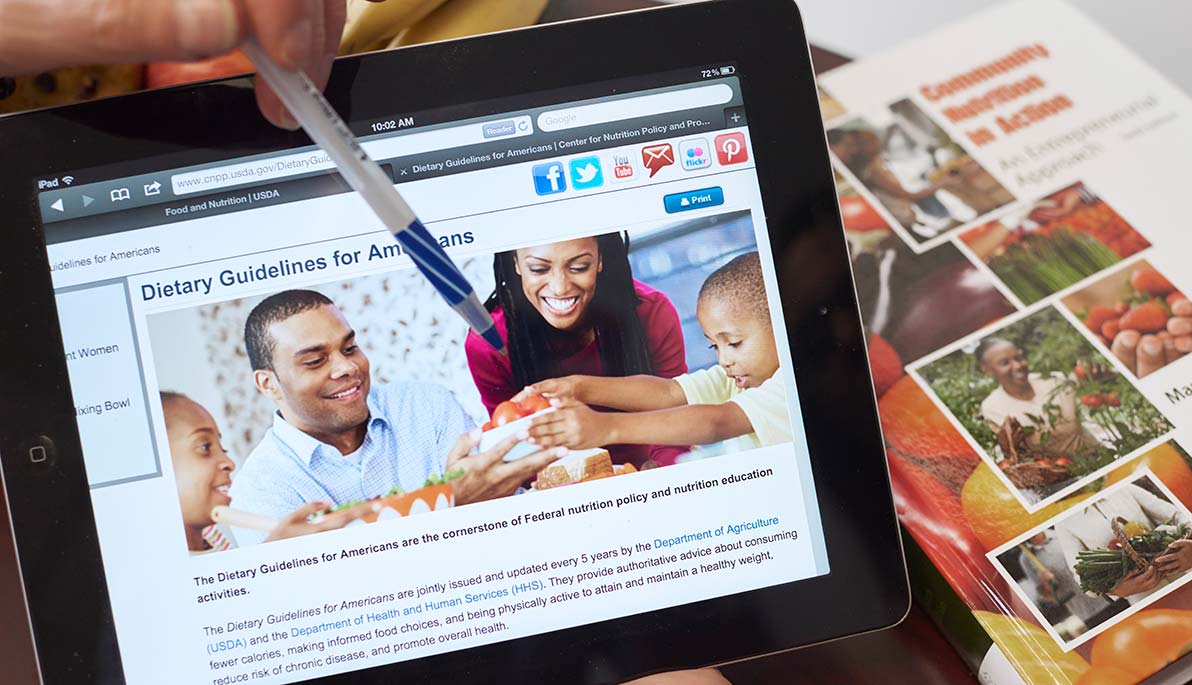
8 Health Tips for 2016
January 26, 2016
Are you finding it hard to keep your New Year's resolution and need some extra motivation to make positive lifestyle changes? If so, heed this advice from the Academy of Nutrition and Dietetics: Lifestyle changes should be sustainable and even enjoyable over the long term. Any practice that is temporary will only produce a temporary benefit.
Take the long view for living a healthy lifestyle. Tweak your diet while upping your physical activity to gradually lose weight. Science supports this approach. The American College of Sports Medicine notes physical activity is a strong predictor of weight maintenance (view PDF). Follow these eight tips to improve your winter diet and work more exercise into your routine:
1. Preparing food in quantity eliminates cleanup time (leaving more time to exercise) and fewer opportunities to nibble. Freezer-friendly foods are flax seed muffins, vegetable soups, and vegetable burgers.
2. "Fast food" can be nutritious and made at home. Make sure to have all the ingredients prepped for meals that can be ready in 10 minutes: Frozen vegetables, canned low-salt beans and salmon, tofu, cottage cheese, whole-wheat couscous, and quinoa are good kitchen staples. Try heating a boxed soup, such as Trader Joe's Latin-style black bean or butternut squash flavors, with a bag of frozen broccoli or spinach for a hearty "homemade soup." Combining the ingredients with an immersion blender makes it all the better.
3. Planning is key to avoid succumbing to unhealthy food choices. For example, if you're often ravenous when you get home from work and are likely to eat whatever is calling you from the fridge or pantry, have a nutritious snack waiting in advance. Try a fruit kabob or vegetable and hummus plate to tide you over while preparing dinner.
4. Eating quickly often leads to overeating. Practice putting utensils down between bites and don't pick them up until you swallow. Most people are surprised to see they habitually take in two to three spoonfuls or forkfuls of food before swallowing.
5. Walk in a group. Your friends are your motivators. If that's not possible, start a virtual walking group with your friends. Make a Google doc with access for each group member to log their miles. Seeing how others are doing kicks up the competitive spirit and gives all members the chance to encourage and support each other. Creating an incentive or contest—such as having each member chip in a few dollars and the one who has walked the most wins the money (once a week or once a month)—also spurs greater accomplishments.
6. Walk more to get things done on the job. Avoid interoffice mail when possible at work. Walk your memo to the neighboring department.
7. If you live in a multi-story house, don't keep a pile of things at the bottom or top of the stairs for the next time you have to go up or down. Bring the item up or down right away. This may not be the best in terms of time management but will certainly create lots more steps from all the additional trips.
8. Taking three 10-minute walks on a daily basis burns the same number of calories as one 30-minute walk. If you don't have a large chunk of time, this makes getting in exercise doable. And if your schedule suddenly changes and you can't do one of the walks, you've still done two-thirds of what you planned for the day.

By Mindy Haar
More Features

An Alumnus’ Commitment to the Environment
As an energy management graduate from New York Tech’s Vancouver campus, Jasdeep Gulati (M.S. ’22) is highly invested in educating people about environmental and climate sustainability.

Vancouver Faculty Win University-Sponsored Research Awards in New Program
The new Global Impact Research Grant (GIRG) program has been developed to keep Vancouver-based faculty connected to faculty and research projects being conducted on the university’s New York campuses.

Studying Climate Change One Degree at a Time
Junhua Qu (M.S. ’24) began her collegiate journey in Beijing. But, her interest in climate change took her to New York Tech’s Vancouver campus to study energy management.